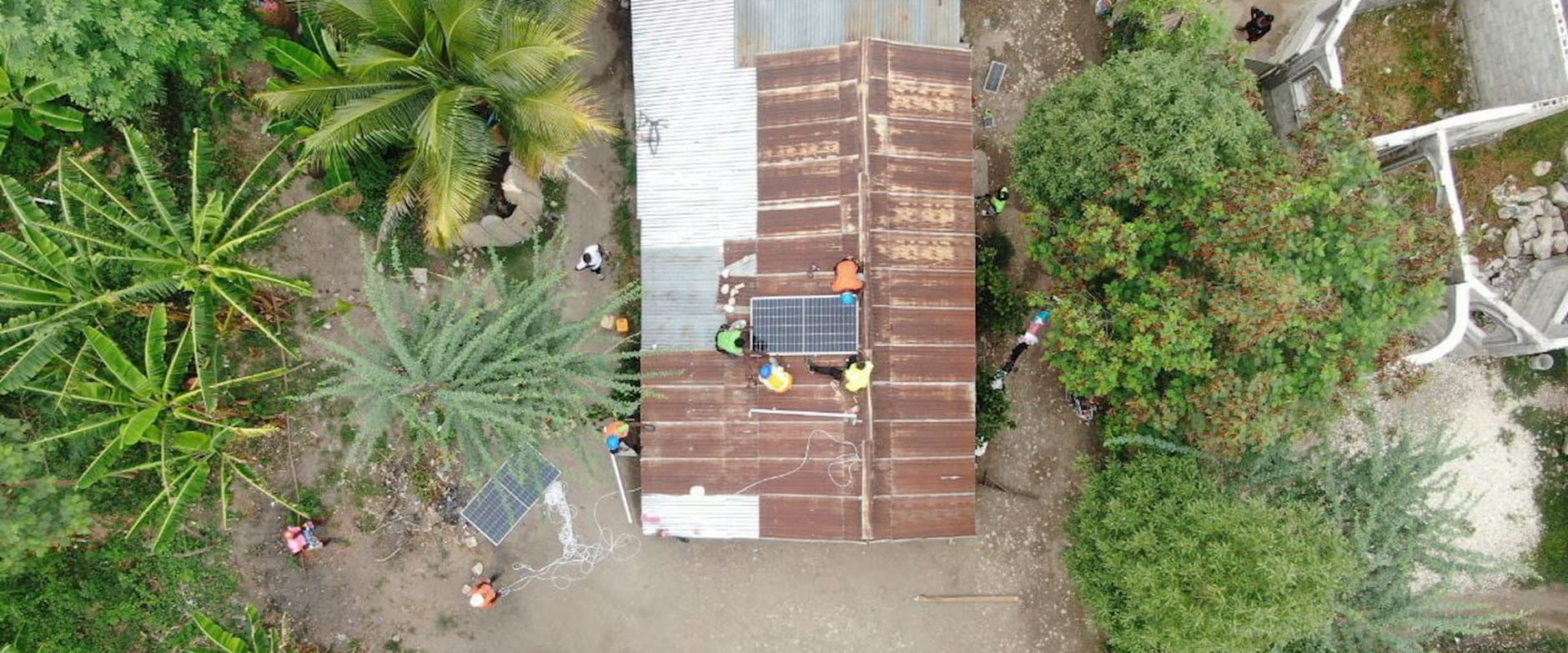For the vast majority of people living in Haiti, electricity is sporadic, unreliable, or simply unavailable. While in business school, Driko Ducasse, MBA ’21, set out to change that by launching Alina Eneji, a startup that aims to provide Haitians with a reliable, clean, and affordable source for electricity.
As he built Alina Eneji from initial concept to full-fledged business, Ducasse participated in the 2020 John Edwardson, ’72, Social New Venture Challenge (SNVC) and the 2022 Alumni New Venture Challenge (ANVC)—two of the four tracks of the University’s nationally ranked business launch program, the New Venture Challenge.
Today, Alina Eneji is providing electricity to 325 households in Haiti and laying the groundwork for a significant expansion. We spoke with Ducasse to learn more about Alina Eneji’s origin story, the value of participating in Booth’s entrepreneurship programming, and the startup’s current and future impact.
What gave you the idea for Alina Eneji?
I was born in Haiti and spent most of my youth in Miami. I used to visit Haiti every summer, and I noticed a big difference in the standard of living between Haitians, who are two hours away from Miami, and those who are living in the United States. For example, there was essentially no electricity. We would get so excited when the electricity would come on for an hour or two.
Then I visited again in 2015, and the same thing was happening. There had been no progress. Electricity is key to development, and I wanted to do something about it.
What makes Alina Eneji different?
We applied a solution that was already being used in Haiti to give more people access to food. Many people in Haiti can’t afford large bags of rice, so entrepreneurs began buying the large bags and selling it in smaller quantities. We applied this concept to electricity. Instead of selling electricity by letting the person use it first and then sending a bill at the end of the month, we sell the electricity in smaller units. That makes it possible to give more people access.
How did participating in the Edwardson SNVC and the Alumni NVC help you build the company?
When I was at Booth, the company was just an idea. It was hard to conceptualize because there were so many obstacles. I went through the SNVC to meet people who could help me think through how to create it. Even though the SNVC ends with a competition, there was a lot of collaboration, and that’s what made the idea come to fruition. People gave open and honest feedback, which helped us to grow the idea.
The ANVC was less structured and less hands-on, but that made sense for where we were as a company because I was working on a pilot by then. We got good feedback from the judges.
What was your next step?
Once we knew we could create a sustainable business, I went to Haiti and connected with people like suppliers and financiers. We created our first pilot, which consisted of 35 households, and it was successful. We can do it faster and cheaper without compromising quality, because we’ve taken a decentralized approach where we put the end product closer to the customer. On top of that, we’re building smaller warehouses, which gives us the ability to do it much more quickly.
How have residents responded to the program?
Since we completed the first pilot in July 2021, people have been using the electricity to enhance their lives and create businesses. There’s a woman who opened a bar and restaurant. We’ve seen a lot of people buy freezers so they can sell cold beverages to people in the community. And people have bought televisions, and now they have movie theaters where you can go to their household and watch movies or sports.
We’ve also seen that people are consistently using the electricity. It’s pay as you go, which means that a person can theoretically go 100 days without paying for electricity. But no one has gone more than six days without putting money on their account, which shows that they value it.
What are your goals for the company?
We’ve already expanded to 325 households, and by July of 2023, we plan to add another 3,000. That will put us at 4,000 in total, which means we’ll have an impact on the lives of 20,000 people. From there, we’re going to expand into other cities. Haiti has 840,000 or 850,000 households that don't have access to electricity at all. We would like to show the regulators and the stakeholders that we can address this problem on a countrywide scale.
More broadly, my goal is to give back because I want other Haitians to have the opportunities that I’ve had. Knowing that I can make a small difference that will improve someone’s life is what has driven me to take this path.


